The discussion around the 8th Pay Commission (CPC) has once again gained attention, especially after recent reports suggested that the Government may soon announce its constitution to revise pay, allowances, and pensions for central government employees. With the news spreading quickly, many Public Sector Bank (PSB) employees are also curious: Will the 8th Pay Commission Affect Bank Employees’ Salaries?
The short answer is No. The salary structure of bank employees does not depend on the Central Pay Commission. Instead, it is determined through a Bipartite Settlement – a separate, industry-specific process that governs pay revision in banks. Here’s a clear look at why the 8th Pay Commission will not impact bank employees, how their salary is revised, and what lies ahead in the next wage settlement.
A bipartite settlement is a formal agreement reached between two parties, typically representing management and employees, to define wages, benefits, and working conditions. In the Indian banking sector, this is a recurring negotiation between the Indian Banks’ Association (IBA) and employee unions like the United Forum of Bank Unions (UFBU) to revise salaries and service conditions for bank employees.
Why Is the 8th Pay Commission in the News?
The 8th Central Pay Commission is currently one of the most discussed topics among government employees. It is expected to review and recommend a new pay structure, allowances, and pensions for Central Government staff, Defence personnel, and All India Services officers.
If formed in 2026, the new pay structure would likely take effect from 1st January 2026, following the 10-year cycle of previous commissions (the 7th CPC was implemented in 2016). However, the Pay Commission does not cover PSU Bank employees, as their salary revision follows a different route altogether.
CPC vs. Bipartite Settlement: The Key Difference
The Central Pay Commission (CPC) is established by the Government of India to revise the pay structure of Central Government employees, the Defence forces, and the All India Services. In contrast, bank employees in PSBs follow the Bipartite Settlement, which is negotiated between the Indian Banks’ Association (IBA) and various bank employee unions such as the United Forum of Bank Unions (UFBU). Here’s how both differ:
| Feature | Central Pay Commission (CPC) |
Bipartite Settlement (BPS)
|
| Applicable To | Central Government Employees, Defence Forces, All India Services |
Public Sector Bank Employees
|
| Authority | Constituted by the Government of India | Negotiated between IBA and Bank Employee/Officer Unions |
| Revision Cycle | Every 10 years | Every 5 years |
| Effective Authority | Government |
Industry-level Negotiation
|
| Purpose |
Revises salary, allowances, and pensions |
Revises wages, allowances, and service conditions
|
| Latest Implementation | 7th CPC (2016) |
12th BPS (Effective from 1 Nov 2022)
|
In summary: The 8th Pay Commission will not impact the salary of bank employees because they are governed by a separate, industry-specific pay negotiation process – the Bipartite Settlement.
The Latest Update: The 12th Bipartite Settlement
The 12th Bipartite Settlement for workmen and the 9th Joint Note for officers were officially signed on March 8, 2024, following extensive negotiations between the Indian Banks’ Association (IBA) and various bank unions. This agreement marks the latest salary revision cycle for employees of Public Sector Banks. The revised pay structure has been made effective retrospectively from November 1, 2022, and will remain valid till October 31, 2027, covering a total duration of five years.
Key Highlights of the 12th BPS
- Wage Hike: 17% increase in the payslip component, effective from November 1, 2022.
- DA & Load Factor: New pay scales constructed after merging DA corresponding to 8088 points and applying a 3.22% load factor on basic pay.
- Five-Day Work Week: All Saturdays as holidays – a major decision pending final Government of India notification.
- Stagnation Increments: Enhanced number and value of stagnation increments for officers across scales.
- 12th Bipartite Settlement: Salary Revisions (Effective from Nov 1, 2022)
Bank Probationary Officer (PO) – Scale I (as per 12th Bipartite Settlement)
| Particulars |
Details (Approx.)
|
| Previous Starting Basic (11th BPS) | ₹36,000 |
| New Starting Basic (12th BPS) | ₹48,480 |
| New Pay Scale | ₹48,480 – 2000/7 – 62,480 – 2340/2 – 67,160 – 2680/7 – 85,920 |
| Gross Salary (Approx.) | ₹78,000 – ₹90,000+ (depending on city & allowances) |
| In-Hand Salary (Approx.) | ₹69,000 – ₹76,000+ (after deductions) |
| Key Allowances & Benefits |
|
Bank Clerk (Customer Service Associate) (as per 12th Bipartite Settlement)
| Particulars |
Details (Approx.)
|
| Previous Starting Basic (11th BPS) | ₹17,900 |
| New Starting Basic (12th BPS) | ₹24,050 |
| New Pay Scale |
₹24,050 – 1340/3 – 28,070 – … – 64,480 (over 20 years)
|
| Gross Salary (Approx.) |
₹40,000 – ₹47,000+
|
| In-Hand Salary (Approx.) |
₹38,000 – ₹43,000+
|
| Key Allowances & Benefits |
|
When Will the Next Bipartite Settlement Arrive?
Since the 12th BPS is valid until October 31, 2027, the next wage revision, the 13th Bipartite Settlement, will likely follow the same 5-year cycle.
- Charter of Demands: Expected to be submitted by bank unions to IBA in 2027.
- Negotiation Period: Typically starts before or after the previous settlement expires.
- Expected Signing: Around 2027-2028, with retrospective effect from November 1, 2027.

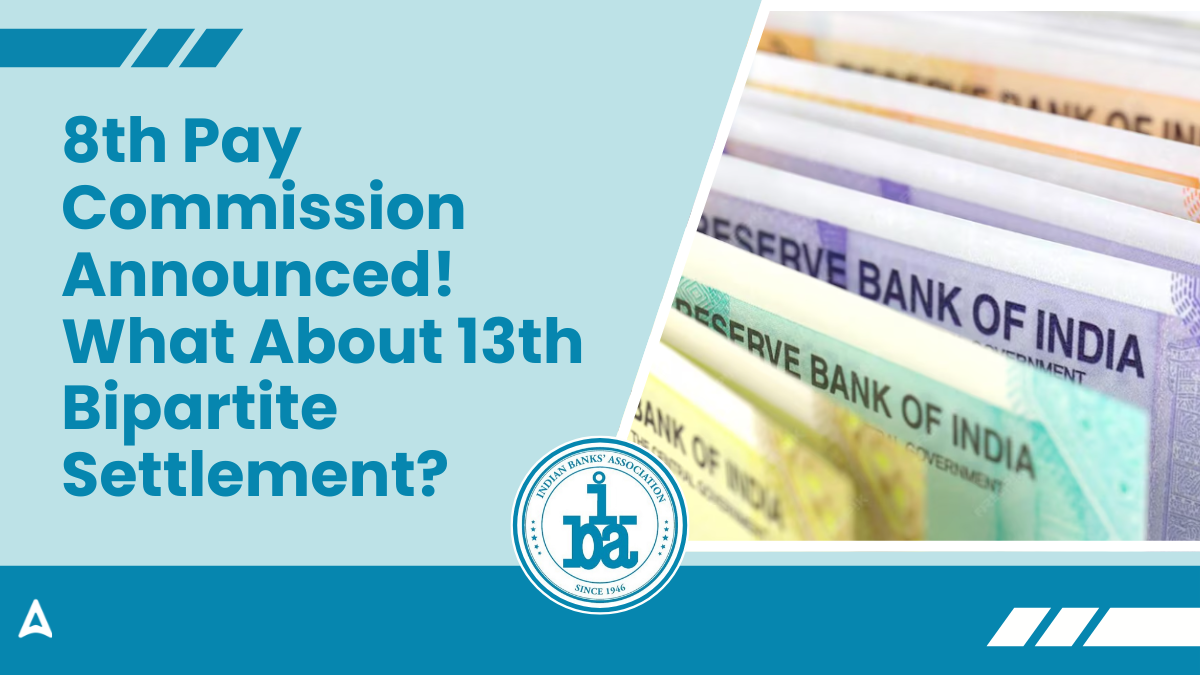
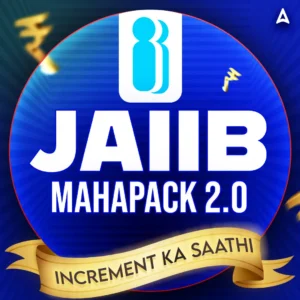

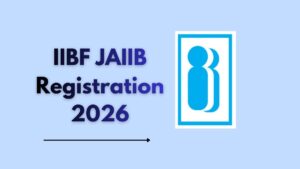 JAIIB Registration 2026: Extended Deadli...
JAIIB Registration 2026: Extended Deadli...
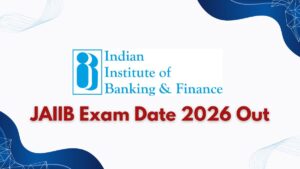 JAIIB Exam Date 2026 Out, IIBF May and N...
JAIIB Exam Date 2026 Out, IIBF May and N...
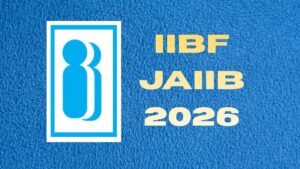 JAIIB 2026 Exam, Check IIBF JAIIB Schedu...
JAIIB 2026 Exam, Check IIBF JAIIB Schedu...
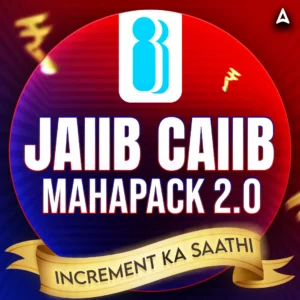
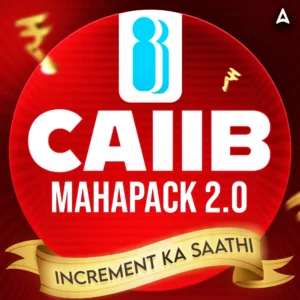
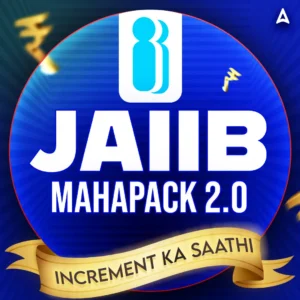
 Adda247 Job portal has complete information about all Sarkari Jobs and Naukri Alerts, its latest recruitment notifications, from all state and national level jobs and their updates.
Adda247 Job portal has complete information about all Sarkari Jobs and Naukri Alerts, its latest recruitment notifications, from all state and national level jobs and their updates.




